- Home
- Brian Lumley
Harry and the Pirates_and Other Tales from the Lost Years Page 5
Harry and the Pirates_and Other Tales from the Lost Years Read online
Page 5
A few moments later Jimmy came out of the house. “Already? You couldn’t have gone very far. What, a couple of hours, maybe less? So where’d you go?”
“Oh, towards the old farm.” The Necroscope was deliberately vague. “But it was just too warm. Up on the back road, I got hot and sticky, decided to come on back. But something happened up there: I met up with this sort of scruffy-looking man called Greg Miller and . . . well, I can’t be sure, but I seem to remember his name in connection with something or other—something bad, I think—when we were kids at school.” For that bell out of Harry’s past was ringing more clearly now, and he had indeed recalled something of an occurrence featuring a man called Greg Miller. Miller, a girl, and—if Harry’s memory served him well—an incident that had outraged this entire north-east region.
Jimmy had been fixing and grouting some tiles in his bathroom; wiping his gritty hands on a rag, he came forward and sat down in one of the deck chairs. Taking the other chair, the Necroscope said, “So, do you remember anything about that?”
Jimmy screwed up his eyes, frowned, and nodded. “I remember something of it, yes. It was the talk of the town. I even heard my old folks whispering about it. Wasn’t Miller a crazy man who murdered his girlfriend and buried her body somewhere in Hazeldene? And if that wasn’t bad enough, she had to be the daughter of a local policeman!”
“Ahhh!” said Harry, feeling the short hairs lifting at the nape of his neck. “Yes, of course. And the policeman’s name? It wouldn’t have been Jack Forester, would it?”
“Forester?” Jimmy was still frowning. And now he shook his head. “No, I don’t think so. I seem to remember Symonds, Arnold Symonds. In fact I’m sure it was him, yes.”
“You’re sure?” (Now it was Harry’s turn to frown.) “But we were just kids and it was quite some time ago; all of fourteen, maybe even fifteen years? So how is it you’re so sure?”
Jimmy winked knowingly and tapped the side of his nose. It always felt good to get one up on Harry. “Because it was in the Northern Echo just a day or so ago,” he said, grinning.
The Necroscope sighed and said, “Okay, Jimmy, go on. What, exactly, was in the newspaper?”
“A list of all the people who’ve jumped off Harden Viaduct since it was built in Victorian times,” Jimmy answered. “It was a hot spot for suicides during the Depression. And I see you’re wondering: why a newspaper article about that now? Because someone left a note saying he intended to jump, that’s why.”
“And did he?”
“No, the fool walked into the sea and drowned himself! But it was a suicide so they did an article on the viaduct anyway.”
“And this Arnold Symonds,” said Harry. “You say he was the father of a girl that Greg Miller is supposed to have killed?”
“A double tragedy.” Jimmy nodded. “The loony Miller kills Symonds’ daughter, and Symonds the local cop—who has already lost his wife to cancer a year earlier—can’t take it anymore so throws himself down from the viaduct. The Echo carried these thumbnail sketches on all the suicides, including his.”
“And Miller?”
“A loony, like I said,” Jimmy answered. “A head case. They put him in a high-security madhouse, and a few years ago transferred him to the mental facility at Sedgefield. Until you told me you’d seen him, I thought he was still in there.” He shrugged. “Maybe he’s been cured or done his time or something. Me, I don’t think we should ever have done away with hanging.”
“No, Jimmy, you’re wrong there!” Harry grimaced, shook his head. “It’s a terrifying thing—the so-called ‘dirty death’—to hang by the neck until you’re dead. I mean, think of all the thoughts chasing each other through your head: the regrets, the bowel-emptying fear as the noose tightens around your neck, the sudden, undeniable knowledge that this is where everything ends . . . until it really does end, as it all shuts down and the only thing left is the cold and the crawling darkness. . . .”
Jimmy’s brow had creased up while Harry talked and his jaw had fallen open. Looking at the Necroscope curiously—perhaps even enquiringly—he very quietly said, “Harry, I’m convinced! Heck, the way you make it sound, it’s as if you’ve already been there! Like you’re Death’s closest relative, or best friend, or something!”
Or something, yes. Or even all of those things!
And glancing back at his friend, Harry thought: I know a great many things about Death, Jimmy. Oh, a great many things! He wished that he could say it out loud, explain it in detail; but anyway, who would believe him? No, not even Jimmy. Or possibly Jimmy, which could be worse still! And so, saying nothing, he kept the weird truth of the matter to himself—and also to the Great Majority—as always.
When it looked as if Jimmy might be about to question something else, however, the Necroscope quickly stood up, and said: “James, my most excellent friend, I seem to remember you saying something about a beer? So how about it? Are the pubs open yet, do you reckon?” Which seemed as good a way as any to change the suddenly morbid subject: a ploy that Jimmy was only too pleased to fall for, which left any uneasy notion conjured by the Necroscope’s vivid portrayal of death to morph into a sort of mental miasma, a mist that drifted unexamined from his mind. . . .
Early the next morning, Harry rode a bus from Harden into Hartlepool where, in the Northern Echo’s dusty archives, he discovered almost everything he desired to know about the Greg Miller case. Much of what he learned corroborated Jimmy Collins’ version of the story; but most important among several new items of interest, the Jack Forester connection finally came to light in an interview that the constable had given following the suicide of his friend and mentor Arnold Symonds. At last the Necroscope could understand and make sense of Forester’s animosity towards Greg Miller.
The story went like this:
In the summer of 1966, all of fifteen years ago, the then-nineteen-year-old Greg Miller, a coke-oven worker at the colliery, had courted Janet Symonds, the seventeen-year-old daughter of Sergeant Arnold Symonds, who was the senior policeman at the police station in Harden. Janet had been a popular young woman; her charming personality had made her a firm favourite with the staff at the electrical goods factory where she worked in Hartlepool. Where Miller was concerned, however, Janet fell foul of her father, who believed that her choice of a man in “pit black”—a coke-oven worker—was a poor one; for of course Sergeant Symonds had planned better things for her.
Perhaps Symonds—whose wife of twenty years had succumbed to cancer a little over a year earlier, in the spring of 1965—was simply being overprotective of his daughter; or then again, considering the way things were about to work out, perhaps not. Whichever, Janet’s eventual disappearance and presumed death by murder was the final tragedy that broke the policeman’s will to live; more especially after young Greg Miller had told his side of the story, a tale which clearly amounted to a madman’s “confession.” And shortly after Miller had been locked away, Arnold Symonds took his own life by leaping from the viaduct’s central span.
As to Miller’s so-called confession:
That had been brought about by the discovery, at the rim of Hazeldene, of Janet Symonds’ ripped and dishevelled clothing—in particular her underthings—which still had traces of Miller’s semen on them. After that . . . it had to have been obvious to him that he must offer up some sort of alibi or explanation, or else suffer the consequences of such irrefutable, albeit circumstantial, evidence.
As for Miller’s reason for remaining silent to this juncture: it was because he had felt that no one would believe him, which was more or less what he’d told the Necroscope only yesterday, all these years after the fact.
And as for the “confession” itself:
While admitting that he and Janet Symonds had been lovers, and that they had made love in the shaded fringes of the forest on the day she disappeared, Miller had insisted that he was innocent of her murder. But oh yes, it had been murder . . . or more properly the incredible semi-ritualistic e
ntrapment and violent butchery of a young girl, of a sort seldom if ever witnessed or experienced by any man before him.
And the guilty party: that had been a monster, a nightmare in the shape of—
—Of the forest itself! A part of which had turned carnivore, stripped Janet of her clothes and then her flesh, tearing her limb from limb on the very spot where she and Greg had made love!
This was as far as the investigators had allowed Miller to continue with this sick, sexual fantasy of an account, which of course amounted to little more than a grotesque confession; and discovering the facts of these events now, the Necroscope could well imagine what sort of reception such a story—and for that matter what sort of treatment its author—would have received in these rough-and-ready north-eastern parts fifteen years ago.
And for a fact certain leaked reports of gratuitous police brutality, presumably the work of Miller’s counsel, had quickly found their way into print in the local press—and had just as quickly been refuted. Not that they would have greatly improved the suspect’s chances; having presented or attempted to present his “ridiculous alibi,” the tide of public and judicial opinion had now very definitely turned against Greg Miller . . . .
Eventually, following the deterioration of Miller’s mental condition into emotional chaos, various psychiatric reports had been prepared. According to one such, Miller was suffering from “a morbid degenerative psychosexual schizophrenia,” a statement which the Necroscope believed must have played a part in saving the man from a life sentence. For with the exception of extreme and dangerous cases, society in general is opposed to the long-term incarceration of the mentally ill, by far preferring hospitalisation and psychiatric care; in which respect it appeared Jimmy Collins was correct to assume that Greg Miller “had been cured or done his time or something. . . .”
As for Constable Forester’s press statement following Sgt. Symonds’ suicide: there was more to that than at first met the eye. In its way a eulogy, still Jack Forester’s bitterness was evident; he seemingly mourned the loss of Janet Symonds as much if not more than that of his friend and mentor, her father! And having met Forester—having witnessed at first hand his raging hatred of Miller—so now, reading between the lines, the Necroscope began to believe that he knew who Sgt. Symonds would have preferred as a life companion for his daughter Janet, and moreover that the man in question had in all probability desired to be just such a companion. It could only have been Jack Forester himself: Arnold Symonds’ police protégé, and the author of this very statement.
More curious than ever, and determined to fathom the Miller/Forester story in its entirety—and even more determined to solve the mystery of those trapped and terrified phantom voices from beyond life—Harry concluded his research at the offices of the Northern Echo and rode the midday bus back to Harden. . . .
During the half-hour ride, however, seated on the upper deck of the bus, with occasional glimpses of the North Sea on his right and mainly open countryside on his left, except where the route cut through once-proud colliery villages which now looked sadly neglected, the Necroscope found that his thoughts kept drifting back to something Greg Miller had said towards the end of their all too brief conversation at Bellingham’s Farm. Miller’s oddly cryptic comment, that “eventually ‘it’ (would) happen again,” kept repeating like an echo in his mind. Or perhaps not like an echo, for instead of fading Miller’s words seemed to be getting clearer and ever more insistent.
“Eventually it will happen again,” the man had said, without specifying an “it” that had since become self-evident. “And when it does, they’ll all . . . huh!” Which was where he’d paused abruptly when he—and in fact the Necroscope, too—had sensed that weird oppressiveness of spirit and its attendant darkening of the psychic atmosphere.
Following which, as if lured hypnotically or magnetically, Greg Miller had set off determinedly, however unsteadily, towards Hazeldene; towards that great brooding forest, yes, in the same direction as the currently undiscovered source of those massed, smothered voices from the darkness beyond life, or close enough to that source that it made little or no difference.
As for Miller’s “it”: assuming that the man wasn’t still psychotic—if he ever had been—and that he hadn’t in fact murdered Janet Symonds himself, it had to refer to whatever he thought had happened to her. His assertion, however, that this fatal attack by a maniacal forest elemental would recur seemed to Harry to indicate a possible familiarity with a recent history of such assaults. Which could mean that the man was indeed a killer and was hinting—perhaps even warning, however unwittingly or subconsciously—that he might soon be ready to kill again! Or, on the other hand . . .
. . . Was it possible, the Necroscope wondered, that what had happened to Janet Symonds had happened before but long ago, and that somehow Greg Miller knew about it? If so, how often had it happened, and how had Miller learned of it?
Perhaps there was a way that Harry could find out. . . .
Jimmy Collins had given Harry a spare key to the house. Letting himself in, the Necroscope found his host’s note in the kitchen. A small factory in an older part of the village was urgently in need of a rewiring job; Jimmy’s services had been called upon; he calculated he would probably have to work on it for the rest of the day, and maybe tomorrow, too. But not to worry: there was food in the pantry and Harry should just go ahead and use whatever he needed.
Giving it a moment’s thought, the Necroscope decided that a ploughman’s lunch—cheese and pickle, a wedge of crusty bread, and a pint of beer in a friendly pub; not necessarily a village pub, rather a town pub in Sunderland some twenty miles north of Harden—would do very nicely. Not that he had anything against Harden’s pubs, but Sunderland had something that Harden didn’t: an old museum, with a small reference library devoted specifically to these north-easterly regions. . . .
In his pre-teens Harry had visited the museum frequently; the contents of its echoing, dusty rooms had never failed to fascinate him. But in those formative years when his weird talents had been immature, undeveloped, the museum’s relics—its many dead things, the fossils, stuffed birds and animals—had exerted little or no influence over him. Now, however, when the Necroscope could sense, hear, and occasionally even feel their incorporeal emanations, it was very different. But now too, he had learned to exclude such deadspeak babble from his metaphysical mind, much as he had with the plaintive insect murmurings in Jimmy Collins’ garden. He knew instinctively which thoughts were from active—albeit dead—intelligences that had become aware of his warm presence and were attempting to communicate, as opposed to the abstract echoes and amorphous images of once-living creatures whose cognitive skills were even more limited in death than they’d been in life, and either responded or refrained from responding accordingly.
Not too far from the museum was a disused underpass whose shallow, arched-over recesses were a godsend for young couples on Friday and Saturday nights when the local dancehall turned out. In his middle to late teens Harry had frequented the spot himself, with Brenda, as they walked from the dance to the bus stop to catch the late-night bus to Harden, and he still remembered the co-ordinates. The tunnel-like subway wasn’t the most hygienic trysting-place for lovers, not at all, but apart from the odd tramp, or some down-and-out sleeping off a drunk there, it would normally be deserted during daylight hours and so was ideally suited to Harry’s purpose.
And indeed it was deserted on that early afternoon as the Necroscope left the Continuum and the shadows of the underpass, stepped out into sunlight, and made his way to a nearby public house. One ploughman’s lunch later and he was all set to visit the museum, whose afternoon open hours were two till six. A few minutes before opening time he climbed marble steps to the massive oak doors of the place, where he saw a tall, thin, forward-leaning old man—who with his dust-dry, cadaverous looks could only be one of two things: either the curator or a local undertaker—using heavy brass keys to open the place up.
Seeing that Harry was the museum’s only customer, the only person waiting to be let in, the old gentleman sighed and said, “Well, at least you seem keen for knowledge, or you wouldn’t be so eager . . . you wouldn’t be here dead on time.” Rambling on as much to himself as to Harry, finally he fumbled the great doors open and continued, “Ah, well—there you are—now we can go on in.” And:
Isn’t it just amazing (the Necroscope thought), how often the word “dead” comes up in everyday conversation? Dead centre, dead cert, dead on time, and so forth? And right now, as far as I’m concerned, we really shouldn’t forget dead-and-alive: as in “dead-and-alive hole!” He meant the museum, which was beginning to look rather dilapidated. But then on an afterthought and far more cruelly: Or perhaps it’s not so much the place as its attendant—who seems far more dead-and-alive than his museum!
But out loud, already regretting his silent sarcasm, Harry only said, “I came here quite regularly as a boy, but even then there didn’t seem to be too many people using the place.”
“Using it?” The curator repeated him, nodding thoughtfully as they went inside. “How interesting. Of course, the museum is here to be used, but in the main its contents are merely viewed . . . it is a curiosity as opposed to a resource. You see, microcomputers are doing away with small museums, just as television has done away with the radio.”
So that was the old fellow’s problem, was it? He felt that the museum was no longer needed—and possibly himself with it—and very likely correctly.
“I can see how you’re probably right,” said Harry. “But at least nothing has yet come along to replace books.”
“Ah, books!” said the other. “But this isn’t a library, my young friend. And even if it was, I think I would be correct in answering that even books are beginning to suffer; their sales, I mean. We do have certain very old manuscripts, of course, but all of them under glass I’m afraid. What exactly were you looking for?” Without waiting for Harry’s answer, he headed for his office: a modern, aluminium-framed, glass-walled cube of a room looking completely out of place where it stood against the wall of this high-ceilinged, oak-floored anteroom.

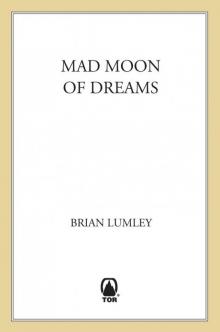 Mad Moon of Dreams
Mad Moon of Dreams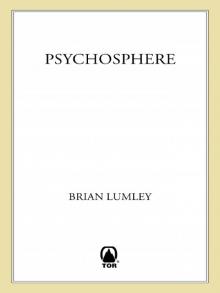 Psychosphere
Psychosphere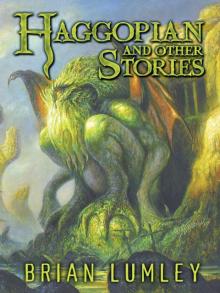 Haggopian and Other Stories
Haggopian and Other Stories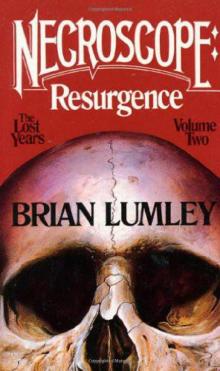 Resurgence_The Lost Years_Volume Two
Resurgence_The Lost Years_Volume Two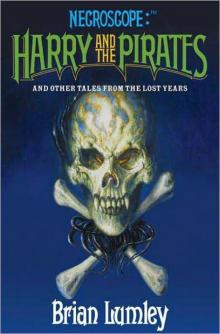 Necroscope: Harry and the Pirates: And Other Tales From the Lost Years
Necroscope: Harry and the Pirates: And Other Tales From the Lost Years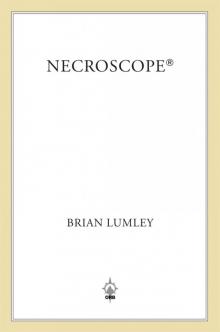 Necroscope®
Necroscope®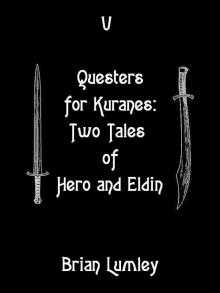 Dreamlands 5: Questers for Kuranes: Two Tales of Hero and Eldin
Dreamlands 5: Questers for Kuranes: Two Tales of Hero and Eldin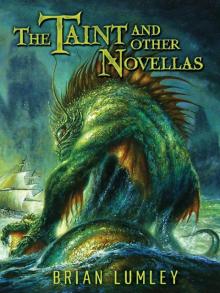 The Taint and Other Novellas: Best Mythos Tales Volume 1
The Taint and Other Novellas: Best Mythos Tales Volume 1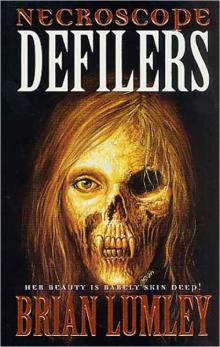 Necroscope: Defilers
Necroscope: Defilers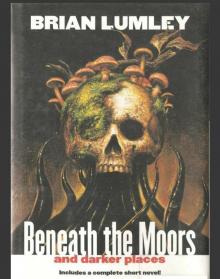 Beneath the Moors and Darker Places
Beneath the Moors and Darker Places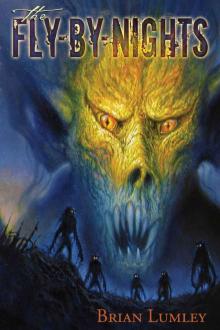 The Fly-By-Nights
The Fly-By-Nights Khai of Khem
Khai of Khem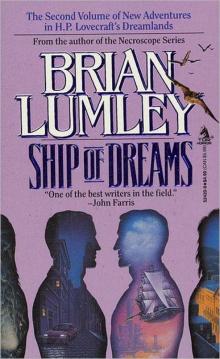 Ship of Dreams
Ship of Dreams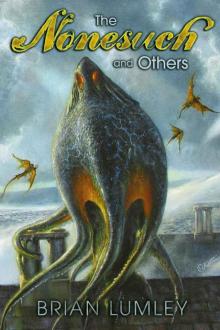 The Nonesuch and Others
The Nonesuch and Others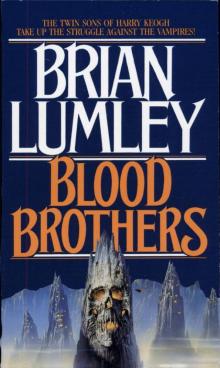 Blood Brothers
Blood Brothers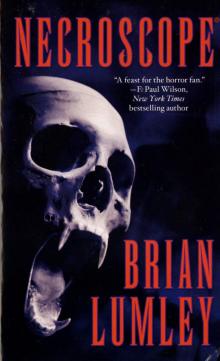 Necroscope
Necroscope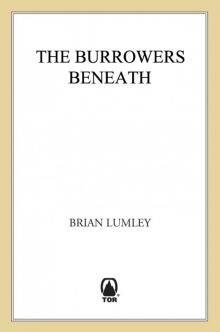 The Burrowers Beneath
The Burrowers Beneath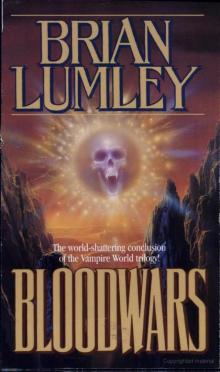 Bloodwars
Bloodwars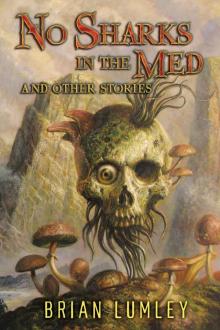 No Sharks in the Med and Other Stories
No Sharks in the Med and Other Stories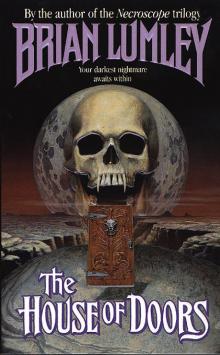 The House of Doors - 01
The House of Doors - 01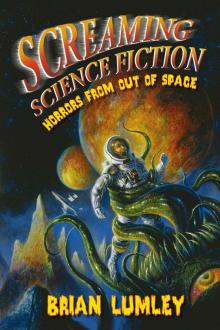 Screaming Science Fiction
Screaming Science Fiction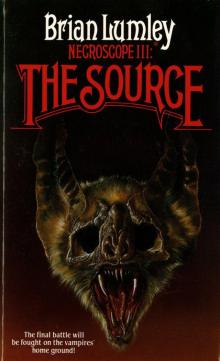 Necroscope III: The Source
Necroscope III: The Source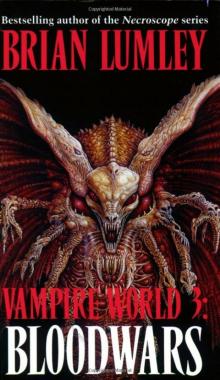 Vampire World I: Blood Brothers
Vampire World I: Blood Brothers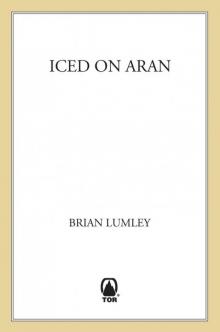 Iced on Aran
Iced on Aran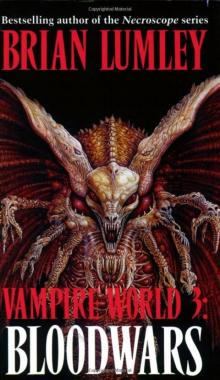 Necroscope: Invaders
Necroscope: Invaders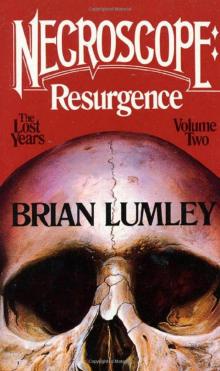 Necroscope: The Lost Years
Necroscope: The Lost Years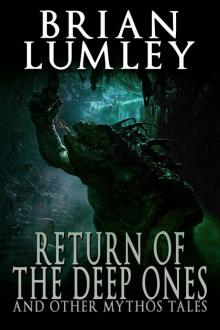 Return of the Deep Ones: And Other Mythos Tales
Return of the Deep Ones: And Other Mythos Tales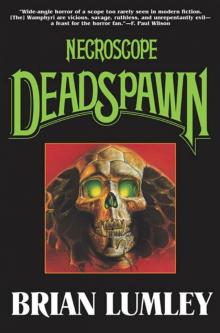 Necroscope V: Deadspawn
Necroscope V: Deadspawn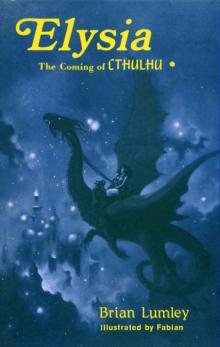 Titus Crow, Volume 3: In the Moons of Borea, Elysia
Titus Crow, Volume 3: In the Moons of Borea, Elysia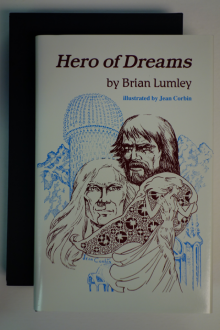 Hero of Dreams
Hero of Dreams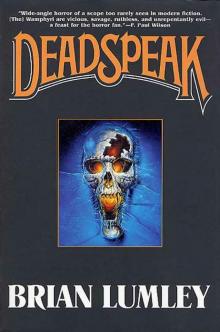 Necroscope IV: Deadspeak
Necroscope IV: Deadspeak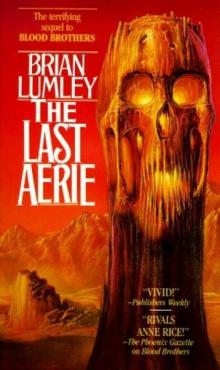 The Last Aerie
The Last Aerie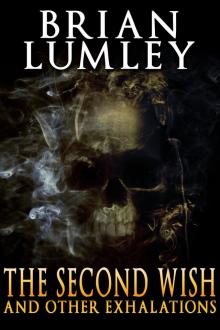 The Second Wish and Other Exhalations
The Second Wish and Other Exhalations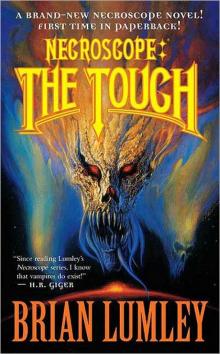 Necroscope: The Touch
Necroscope: The Touch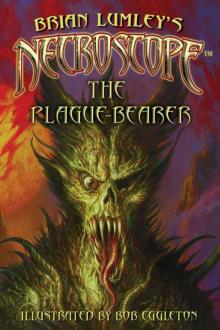 Necroscope: The Plague-Bearer
Necroscope: The Plague-Bearer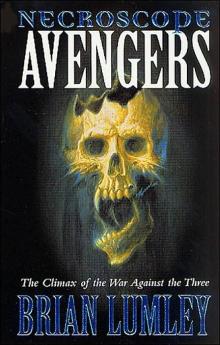 Necroscope: Avengers
Necroscope: Avengers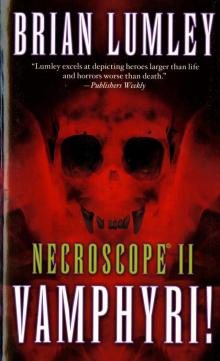 Necroscope II: Wamphyri
Necroscope II: Wamphyri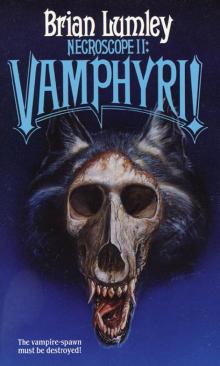 Necroscope II_Vamphyri!
Necroscope II_Vamphyri!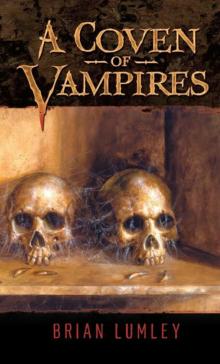 A Coven of Vampires
A Coven of Vampires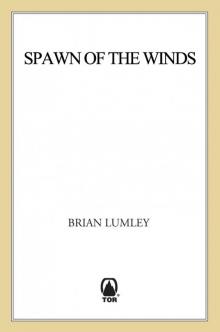 Spawn of the Winds
Spawn of the Winds Sorcery in Shad
Sorcery in Shad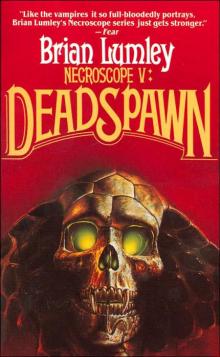 Deadspawn
Deadspawn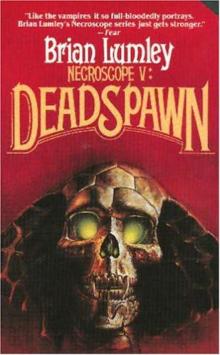 Necroscope V: Deadspawn n-5
Necroscope V: Deadspawn n-5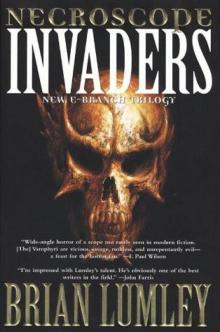 Necroscope: Invaders e-1
Necroscope: Invaders e-1![Beneath the Moors and Darker Places [SSC] Read online](http://i1.bookreadfree.com/i/03/20/beneath_the_moors_and_darker_places_ssc_preview.jpg) Beneath the Moors and Darker Places [SSC]
Beneath the Moors and Darker Places [SSC]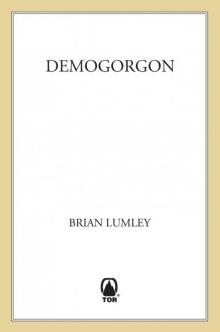 Demogorgon
Demogorgon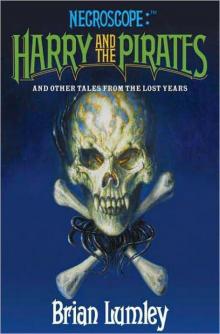 Harry and the Pirates_and Other Tales from the Lost Years
Harry and the Pirates_and Other Tales from the Lost Years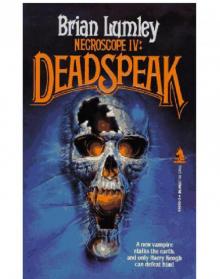 Necroscope IV: Deadspeak n-4
Necroscope IV: Deadspeak n-4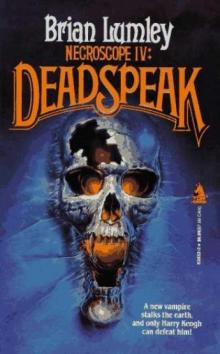 Deadspeak
Deadspeak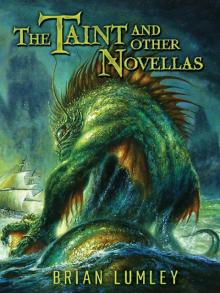 The Taint and Other Novellas
The Taint and Other Novellas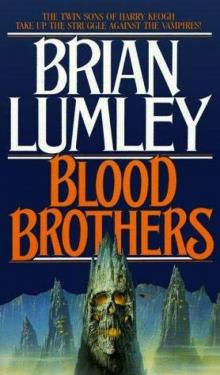 Blood Brothers vw-1
Blood Brothers vw-1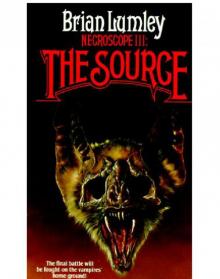 The Source n-3
The Source n-3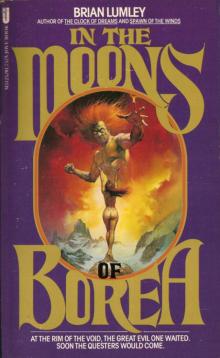 In the Moons of Borea
In the Moons of Borea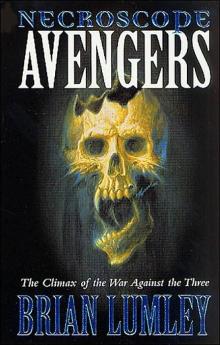 Avengers
Avengers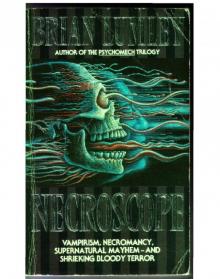 Necroscope n-1
Necroscope n-1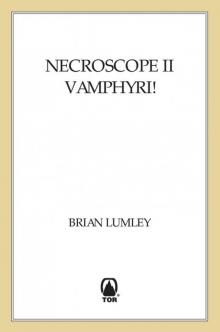 Vamphyri!
Vamphyri!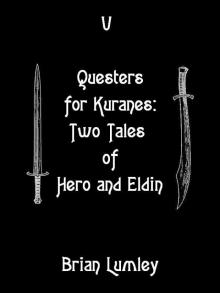 Questers for Kuranes: Two Tales of Hero and Eldin
Questers for Kuranes: Two Tales of Hero and Eldin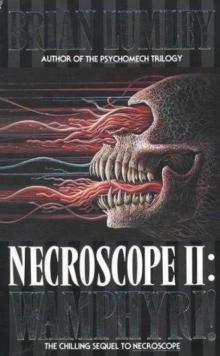 Necroscope II: Wamphyri! n-2
Necroscope II: Wamphyri! n-2 The Source
The Source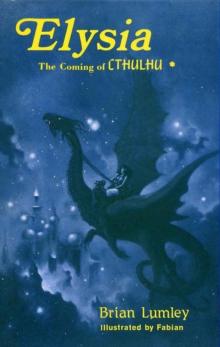 Elysia
Elysia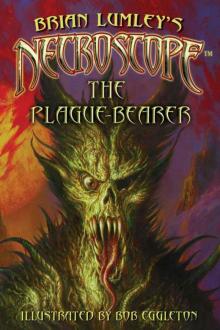 The Plague-Bearer
The Plague-Bearer The Touch
The Touch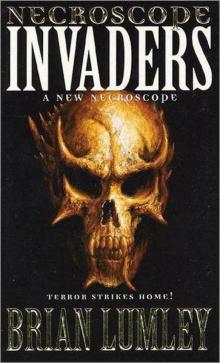 Invaders
Invaders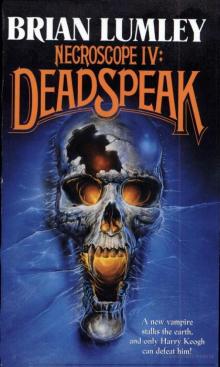 Necroscope 4: Deadspeak
Necroscope 4: Deadspeak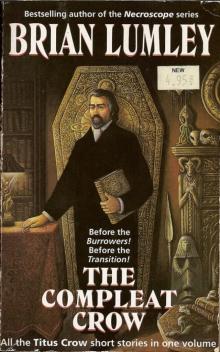 Compleat Crow
Compleat Crow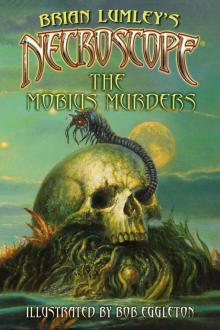 The Mobius Murders
The Mobius Murders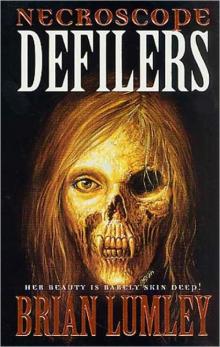 Defilers
Defilers